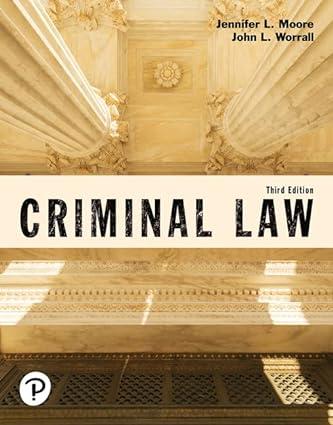Ignorance occurs when the defendant does not know there is a law applying to his or her
Question:
• Ignorance occurs when the defendant does not know there is a law applying to his or her activity.
• Mistake occurs when the defendant knows there is a relevant law that applies to his or her conduct, but is not sure whether it applies in the circumstances at hand.
• In some circumstances, a person may be able to rely on an interpretation of the law that turns out later to be erroneous.
• If there was a lack of fair notice that the actions in question were criminal, a person may be able to successfully claim ignorance or mistake.
• Ignorance or mistake can—in very limited circumstances—excuse criminal liability if either manages to negate mens rea.
Questions:-
1. Provide one example each for ignorance and mistake.
2. Can ignorance serve as a criminal law defense? If so, when?
3. Can mistake serve as a criminal law defense? If so, when?
Step by Step Answer:






